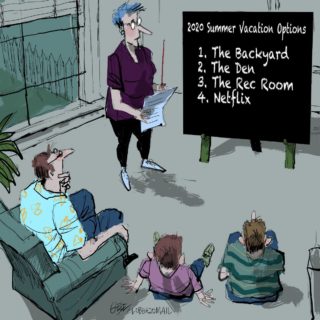Prime Minister Justin Trudeau says foreign interference has touched all political parties as he welcomed a decision by the foreign interference inquiry to look into allegations that current and former parliamentarians have been unwittingly or wittingly compromised by hostile foreign state actors.
The House of Commons passed a Bloc Québécois motion last week to ask the head of the inquiry, Justice Marie-Josée Hogue to examine allegations that surfaced in a report from the National Security Intelligence Committee of Parliamentarians (NSICOP), an oversight body set up by Mr. Trudeau.
In a statement Monday, the Foreign Interference Commission said Justice Hogue will study the alleged “role that certain parliamentarians may have played.”
But the inquiry indicated that it may not release names of parliamentarians accused of participating in foreign interference, noting that Justice Hogue has an “obligation to respect the principles of procedural fairness and the fundamental rights of any person affected by its work, in compliance with the rule of law.”
In an interview with CBC’s Power and Politics Monday evening, Mr. Trudeau appeared to dispute an allegation by NDP Leader Jagmeet Singh that none of his caucus members had been compromised. “I would be very wary of any party leader drawing any sort of any conclusion like that,” he said, adding, “we know that foreign actors are trying to interfere in all different parties in many different ways.”
Pressed to explain whether the NDP has been affected by foreign interference, Mr. Trudeau said, “I am implying that interference in our parliamentarians goes beyond party lines from many different sources.”
The Prime Minister said Canadians should be assured that Justice Hogue will determine the scope of parliamentarians who may have been compromised. “That is a very clear way to give answers to Canadians on what can be shared, what level of alarm people should have on that,” he said, but added: “It doesn’t necessarily mean that they are going to find one way or another in terms of naming names.”
NSICOP found in a June report that some parliamentarians are collaborating with foreign governments for their own benefit, with some of them “wittingly” helping foreign governments, such as China and India, meddle in Canadian politics.
Opposition Leader Pierre Poilievre has challenged the government to name the politicians. The federal government had instead urged all party leaders to request classified briefings on the NSICOP report to see the unredacted version.
Mr. Poilievre’s office said he would accept a briefing by the Canadian Security Intelligence Service on any outstanding security concerns if federal officials feel there are foreign interference concerns about his party or caucus that should be brought to his attention. Mr. Singh and Green Party Leader Elizabeth May have already read the unredacted version of the NSICOP report and their reactions differed substantially. Ms. May played down the findings while Mr. Singh said he was alarmed by the report, and there were “serious examples where parliamentarians engaged in activity that undermined our country.”
The Hogue commission said it has access to the unredacted version of the NSICOP report and all classified documents used to prepare its findings. The inquiry also has access to all documents used in a recent report by the National Security and Intelligence Review Agency, a watchdog agency that oversees federal intelligence agencies. NSIRA described Canada’s approach to Chinese foreign interference as an “unacceptable state of affairs” in which the country’s spy agency and the Public Safety Department failed to track who has read and received key reports.
NSICOP, which is composed of MPs from all major parties as well as senators, declined to identify the parliamentarians, saying restrictions built into its mandate constrained it from doing so. The government also has refused to identify the federal politicians publicly, saying revealing classified information is irresponsible, and won’t say how many are accused or whether any sit in cabinet.
The Prime Minister’s Office has had the classified version of the report since March, including the names of parliamentarians identified. The commission said it hoped to complete its final report on measures to combat foreign interference and its study of compromised parliamentarians by Dec. 31.
The NSICOP report said some politicians are accepting money from foreign governments and are communicating frequently with them to obtain support from community groups or businesses that foreign diplomats have promised to mobilize to help their campaigns.
Others are allegedly providing foreign diplomats with privileged information on fellow parliamentarians knowing that this information will be used to put pressure on these colleagues to change their positions. Some are lobbying colleagues or influencing parliamentary business to help a foreign state, and some are leaking confidential information to known intelligence officers of foreign states, the report said.
ROBERT FIFE, OTTAWA BUREAU CHIEF
STEVEN CHASE, SENIOR PARLIAMENTARY REPORTER
The Globe and Mail, June 17, 2024

